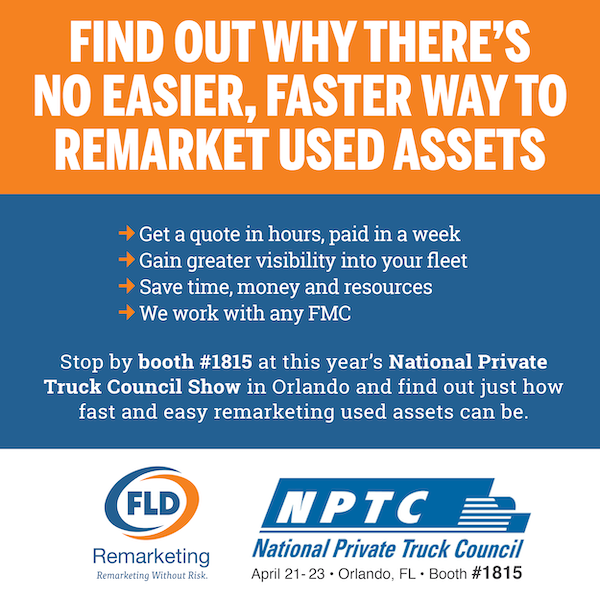
By Ed Pierce, Contributing Editor
In 2021, we’ve heard about chip shortages, supply chain disruptions and OEM slowdowns ad nauseum. In the midst of all this chatter, one bright spot that has sparked the enthusiasm of both the fleet industry and the average consumer is the coming EV revolution. Anticipated to take place more or less over the next 10 years, these changes will not be without some bumps in the road. One concern is the development of infrastructure. Another “bump” receiving less attention could be volatility in residual values—for either or both electric vehicles (EV) and internal combustion engine vehicles (ICE). What is your risk to exposure?
We decided to ask the experts on risk. RVI is an organization that has managed residual risk exposure since 1989. Residual value insurance is purchased primarily to provide accounting coverage, increased loan to value ratio and asset value coverage. We had the opportunity to speak with two RVI executives, Wei Fan, Senior Vice President of Risk Management and David McKay, Vice President of Business Development and Sales. They provided some perspective on residual value risk for an industry facing a once-in-a-century type of change.
While insuring residual risk may seem unusual to many in fleet, this type of insurance is not new to the market, or even unique to our times. Wei explains, “Very few people actually know about residual value insurance these days but it has an interesting history. As a matter of fact, residual value insurance was very instrumental in the development of auto leasing in the early days when the used car market was not nearly as developed as it is today. And people were not sure about residual values—how were they going to shake out in the future? There were many significant insurance companies offering residual value insurance back then.”
Wei detailed that there were two problems back then. First, companies in the industry didn’t recognize the uniqueness of this coverage and treated this type of insurance like any other property and casualty insurance—and they lost money. Secondly, as the resale market matured, residual value became more predictable and demand for the insurance diminished.
Now, however, Wei suggests that the time has returned to consider this type of coverage. Over the next few years, with a sea-change about to happen, there may be some instability in the resale market, leaving organizations exposed to losses in residual values.
Potential Changes in Leasing Types and Liability?
Wei started by pointing out that today, most commonly, fleet vehicles are leased with open-ended leases which push the residual value risk to the lessee. As fleets move to electric vehicles, with their residual value not yet proven, fleet managers could take another look at closed-ended leases, pushing the risk to the lessor. As we move from ICE vehicles to EVs, there is potential for volatility in residual value making the choice of a closed-end lease more attractive to fleets. So, dependent upon the type of lease, residual value insurance could be a tool for the lessor or the lessee.
Reviewing Residual Risk as a Fleet Strategy
Many fleets are working with a small staff and a large dependence on their fleet management companies (FMCs). Dave explains that because of the multitude of services and the heavy reliance on FMCs to get the daily tactical work covered, the more complex residual risk in a mixed ICE/EV fleet could be overlooked. He believes that the FMC has a responsibility to look strategically at this risk and points out, “So I think that it’s important that fleet management companies begin to consider how they’re going to protect not just the lessor, but their consumer, their customer, the fleet company, from the potential losses that they could experience with some of the depreciation.”
Assessing the residual risk for EVs could be complicated over the next few years. While organizations are being pushed by senior management and their boards to add electric vehicles, the full vehicle life-cycle may not be analyzed. Dave continues, “And let’s admit right out front—residual values for EVs in the initial period of time will be a little challenging. There’s a lot of moving parts.”
“But also, when you get down the road, I think it’s really interesting to think about the potential impact,” Dave explains, “We’ve had ICE, and by ICE I mean internal combustion engine vehicle fleets forever. Well, just a second. What if the demand for those vehicles when they come off lease now drops substantially as the market flips? And that’s some of the things that we and the analytics team at RVI have been looking at. Because we’re looking at long tail risk, right?”
Timing the residual value on either type of vehicle will be complicated, and possibly fluid for the next few years. No one knows the tipping point for ICE vs EV values. Wei warns that the current red-hot remarketing values may be hiding future turbulence. He explains that, as EVs become a preferred product for consumers, that there could be a very catastrophic impact on ICE vehicle residuals. A relatively recent example of a consumer shift was that of the changing preference from cars to SUVs and crossovers. “…we observed a 20% gap between cars and SUVs and crossovers in the past 15 years.” Wei warned, “The [remarketing] impact on the gasoline vehicle from EVs in the future could be more catastrophic than this.” He adds that that during this time of uncertainty, residual value insurance could once again play a role, “..when the used car price is really high, that’s the time you should buy some coverage. It’s like you’re buying stock when the price is low.”
Liability Insurance to Protect an Organization in the Post Pandemic Years
 We have lived through some unthinkable times in the past two years. Organizations will want to emerge ahead of the competition—without liability burdens from fleet. Dave suggested, “If your balance sheet is tied up with potential downside risk of vehicles on it, that’s money that’s not going for growth—that your investors are not seeing a return on.” He went on to explain that there are also accounting benefits to residual value insurance, which FMCs and their clients should understand.
We have lived through some unthinkable times in the past two years. Organizations will want to emerge ahead of the competition—without liability burdens from fleet. Dave suggested, “If your balance sheet is tied up with potential downside risk of vehicles on it, that’s money that’s not going for growth—that your investors are not seeing a return on.” He went on to explain that there are also accounting benefits to residual value insurance, which FMCs and their clients should understand.
Open-ended leases have been the standard for US fleets, but should fleet managers be reviewing that choice in these changing times? Dave suggests, “There’s risk that’s inherent in things that people are doing today that they may not be aware of. And there are some solutions for them that can have some real benefits not only in ensuring that they cap their losses at a certain point, but also the accounting benefits that can accrue to them as well.” He continued, “A bonus is to be able to offload that risk to another entity in a growth cycle.”
Some of this potential liability could fall on the FMCs; some of it could fall directly on the lessee. Dave recommends taking a look at your exposure and warns that once it becomes a well know problem, it is too late, “…it’ll be a more expensive problem to solve. That’s just the nature of the deal. But our point of view is that it’s important that the industry think about these issues before they become issues that are expensive to solve.” He adds, “One of the decisions you could make, for instance, is portfolio balancing.” And, Dave points out one element that will provide additional help is to back up the portfolio with residual value insurance. Are you or your FMC keeping an eye on this?
Of course, discussion of liability exposure is dependent upon your situation. If it fits, residual value insurance could be another tool in your arsenal during turbulent times. A discussion with your finance department, legal advisors, your FMC, and perhaps the local clairvoyant will be in order. Wei and Dave are in an insurance business whose time may have just returned.





